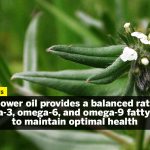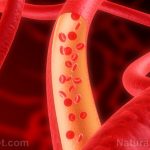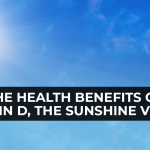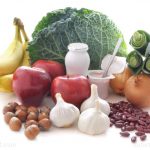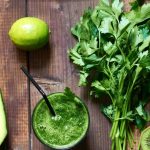
A bit of healthy fat in your green smoothie goes a long way: Why you need fat-soluble vitamins in a balanced diet
Monday, November 18, 2019 by Zoey Sky
http://www.naturalnewsnutrients.com/2019-11-18-why-you-need-fat-soluble-vitamins-balanced-diet.html
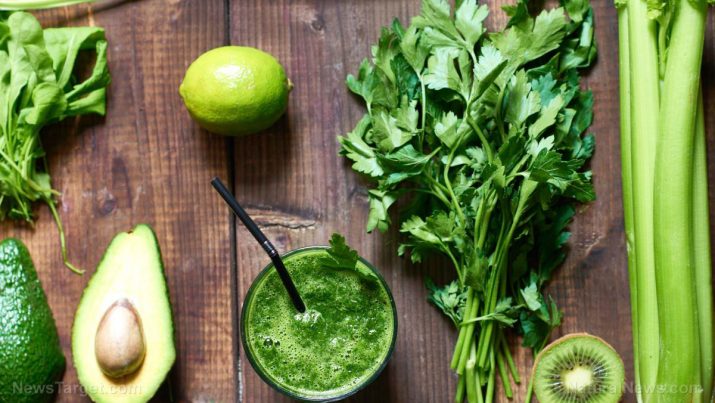
Making positive lifestyle changes includes improving your eating habits and avoiding processed, sugary junk food. But did you know that you need to add healthy fats to salads and smoothies to improve your vitamin absorption?
It’s time to stop demonizing fat
Fresh plant-based foods are full of vitamins and minerals. However, fat-free salads or smoothies aren’t the best way to get your daily dose of nutrients.
Ordering a salad without any dressing or drinking smoothies made with only a protein source and fruits or leafy greens can make you feel like you’re eating clean, but you also need healthy fats to ensure that your diet is well-balanced.
In fact, fat isn’t just a healthy part of nutritious salads and smoothies: It’s an essential ingredient.
Any dish or smoothie that contains greens is also full of fat-soluble vitamins. Leah Silberman, a registered dietitian and founder of Tovita Nutrition, says that you need to pair certain vitamins with healthy fats.
According to her, some vitamins, particularly fat-soluble vitamins A, D, E and K, need to be consumed with healthy fats to boost their absorption.
Some antioxidants also behave similarly, and healthy fats make these antioxidants more bioavailable. To illustrate, lycopene, a phytonutrient found in red tomatoes, is easier to absorb if you cook and eat it with a bit of olive oil.
Leafy greens are a great source of vitamins A, D, E and K. But not eating these vitamin-rich foods with healthy fats prevents you from getting all the nutritional benefits they offer.
Listed below are other sources of fat-soluble vitamins.
- Vitamin A – The main natural food sources of vitamin A are butter, fish liver oil and liver. Other sources include vegetables such as carrots, kale and spinach.
- Vitamin D – Food sources of vitamin D include eggs, fish oil and mushrooms.
- Vitamin E – Plant oils, nuts and seeds are the best dietary sources of vitamin E. You can also boost your intake of this vitamin by consuming foods like avocado, fatty fish, fish liver oil and peanut butter.
- Vitamin K – Leafy green vegetables are rich in vitamin K1 (phylloquinone) while animal-sourced foods are a great source of vitamin K2 (menaquinone).
Healthy fat and fat-soluble vitamins
Ensure that you’re following a balanced diet by getting enough healthy fat with your vegetables. Do this by adding nuts or skin-on chicken to your salad, and using a dressing made with healthy extra-virgin olive oil.
When it comes to smoothies, include any of these natural sources of healthy fat:
- Avocado
- Coconut butter
- Dairy or non-dairy yogurt or nut butter (Related: Enjoy a refreshing ginger cauliflower smoothie bowl and improve your digestive health.)
- Hulled hemp hearts
- Soaked nuts or seeds
The healthy fats in your salad or smoothie can also help you feel full longer.
Here are more food sources of healthy fat:
- Cashews are full of omega-3 fatty acids that boost heart health. Add two tablespoons to a green smoothie for a bit of crunch.
- Coconut oil is an appetite suppressant and energy booster. Add about two tablespoons of coconut oil when making a smoothie.
- Flaxseed oil contains both omega-3 and omega-6 fatty acids. It promotes brain and heart health and is rich in fiber that helps prevent constipation.
Even though these fats are considered “healthy,” it is best to add only moderate amounts to your salads and green smoothies for optimal nutrient absorption.
Sources include:
Tagged Under: Tags: diet, Fresh Fruits, fresh vegetables, goodfood, goodhealth, green smoothies, gut health, healing foods, healthy fats, longevity, natural health, nutrient absorption, nutrients, phytonutrients, prevention, recipes, superfoods

